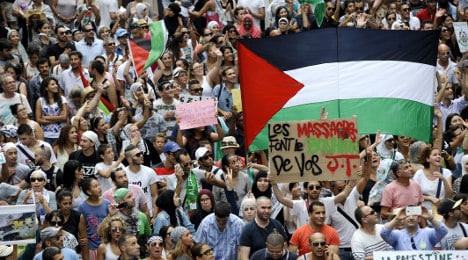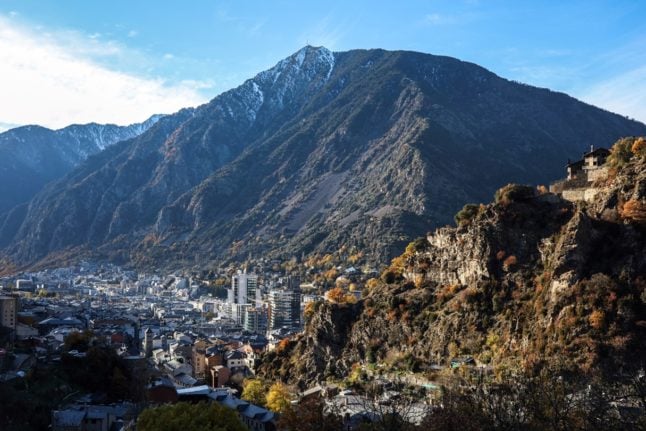The non-binding but highly symbolic vote, to be held on 28th November, was proposed by the ruling Socialist party, and follows a similar resolution by the British parliament and an official decision to recognise Palestine by the Swedish government.
A draft of the new proposal states that the lower house National Assembly "invites the French government to use the recognition of the state of Palestine as an instrument to gain a definitive resolution of the conflict".
European leaders have shown signs of mounting impatience with Israel over its continued settlement building in Palestinian territories.
Criticism has become more focused in the wake of this summer's 50-day offensive by the Israeli army in Gaza, which killed more than 2,000 Palestinians and dozens of Israelis.
France saw a spate of pro-Palestinian protests during the offensive.
Some turned violent, with looters in July destroying Jewish businesses and shouting anti-Israel obscenities in the Paris suburb of Sarcelles – sometimes known as "Little Jerusalem" for its large community of Sephardic Jews.
The Jewish Agency for Israel, an advocacy group, said in September that more Jews had left France for Israel than from any other country in 2014, blaming a "climate of anti-Semitism."
Foreign Minister Laurent Fabius acknowledged in an interview with AFP last week that France would "obviously at a certain moment recognise the Palestinian state."
"The question is when and how? Because this recognition must be useful for efforts to break the deadlock and contribute to a final resolution of the conflict," he added.
The French parliamentary vote will come hot on the heels of a similar resolution to "recognise the state of Palestine alongside the state of Israel as a contribution to securing a negotiated two-state solution" approved by British lawmakers on 13th October.
Sweden announced on 30th October that it officially recognised the Palestinian state, a move that has been heavily criticised by Israel and the United States.
And on Saturday, Europe's foreign policy chief Federica Mogherini called for a Palestinian state, sharing Jerusalem as its capital with Israel.
The Palestinian Authority estimates that 134 countries have now recognised Palestine as a state, although the number is disputed and several recognitions by what are now European Union member states date back to the Soviet era.
An AFP count puts the number of states that recognise Palestine at 112.
France was among 14 EU nations that voted in favour of granting Palestinian territories observer status at the United Nations in November 2012.



 Please whitelist us to continue reading.
Please whitelist us to continue reading.
Member comments